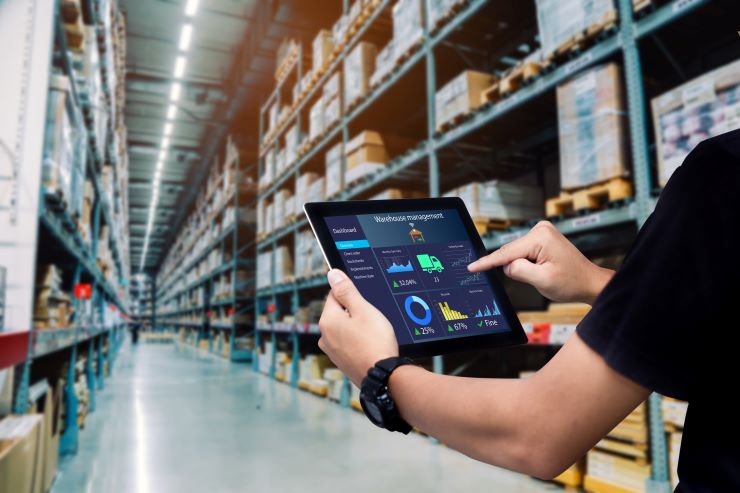5 Ways AI is Reshaping the Supply Chain
In the ever-evolving landscape of business, artificial intelligence (AI) is proving to be a game-changer, particularly in the realm of supply chain management. By harnessing the power of AI, businesses can optimize operations, enhance efficiency, and stay ahead in the competitive market. In this article, we’ll delve into five pivotal ways AI is reshaping the supply chain, offering unprecedented insights and solutions to age-old challenges.
1. Predictive Analytics for Demand Forecasting
One of the primary challenges in supply chain management is accurately predicting demand. AI addresses this hurdle by employing predictive analytics, a sophisticated approach to forecasting. By analyzing historical data, market trends, and external factors, AI algorithms can generate precise predictions of future demand.
This capability enables businesses to optimize inventory levels, minimizing excess stock and reducing the risk of stockouts. With enhanced demand forecasting, companies can streamline their supply chain processes, making them more responsive to market fluctuations and better equipped to meet customer expectations.

2. Smart Inventory Management

Managing inventory efficiently is a complex task, often prone to human error. AI steps in with smart inventory management solutions, automating and optimizing this critical aspect of the supply chain. Real-time monitoring of stock levels, automated reordering, and intelligent analysis of consumption patterns empower businesses to maintain optimal inventory levels.
This not only reduces holding costs but also prevents stockouts and overstock situations. Through AI-driven inventory management, companies can strike the delicate balance between ensuring product availability and minimizing the capital tied up in unsold goods.
3. Enhanced Logistics and Route Optimization
AI’s impact on logistics is transformative, particularly in optimizing delivery routes. By processing real-time data on factors such as traffic conditions, weather forecasts, and historical shipping data, AI algorithms can dynamically adjust delivery routes.
This not only reduces transportation costs but also improves delivery times and minimizes the environmental footprint by optimizing fuel consumption. The result is a more efficient and sustainable supply chain that meets customer expectations for timely and eco-friendly deliveries.

4. Quality Control and Predictive Maintenance

Maintaining product quality throughout the supply chain is paramount. AI, through technologies like computer vision and machine learning, is revolutionizing quality control.
Automated inspection systems powered by AI can swiftly and accurately identify defects or irregularities in products, ensuring that only high-quality items reach consumers. Additionally, AI contributes to predictive maintenance by analyzing equipment data to anticipate maintenance needs. This proactive approach minimizes downtime, reduces the risk of unexpected disruptions, and prolongs the lifespan of valuable assets within the supply chain.
5. Supply Chain Visibility and Transparency
AI brings unprecedented levels of visibility and transparency to the supply chain. Real-time data analytics enable businesses to track the movement of goods, monitor inventory levels, and identify potential bottlenecks.
This increased visibility allows for informed decision-making, risk mitigation, and the creation of more resilient supply chain networks. By leveraging AI-driven insights, companies can respond swiftly to disruptions, build stronger relationships with suppliers, and enhance overall supply chain resilience.

Conclusion
In conclusion, the integration of AI into the supply chain is reshaping the way businesses approach logistics and operations. From predictive analytics to enhanced visibility, each application of AI brings a unique set of benefits that collectively contribute to a more agile, responsive, and efficient supply chain. As companies embrace these technologies, they position themselves to not only meet the challenges of today but to proactively adapt to the demands of the future.
At Patang, we provide a range of services: from AI/ML implementation in logistics & RPA technology, to our Global Visibility Platform for real time tracking and Predictive Analytics in all of our digital supply chain solutions.


